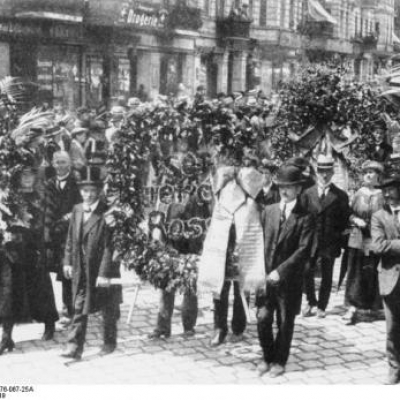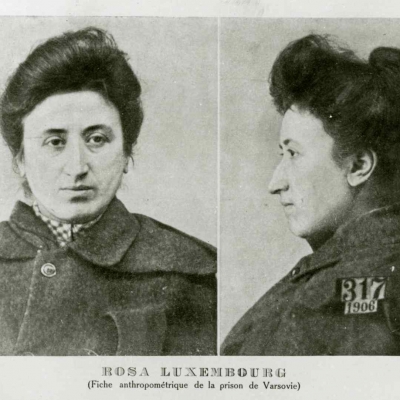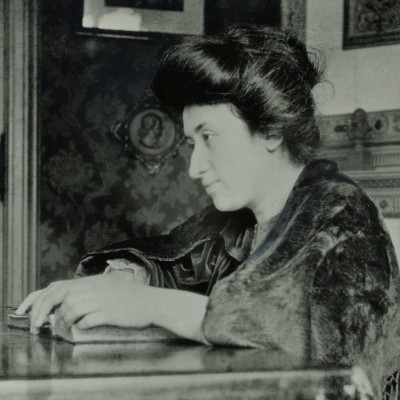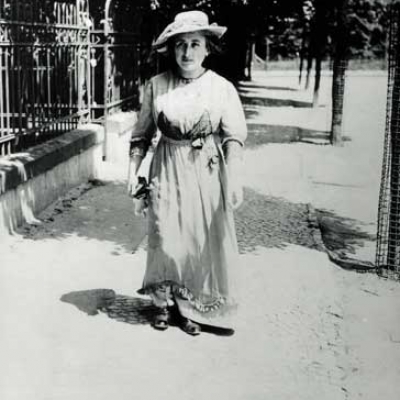Held June 9, 2018 at the University of Houston. Moderated by Danny Jacobs.
Panelists:
Kelly Alana (Socialist Alternative)
Rainer Durruti (Space City John Brown Gun Club)
Rachel Clarke (Educator)
Description:
Recent school shootings and the ever-recurring instances of police brutality pose acutely the question of gun control today. Should the Left take up the demand for gun control, and if so, how? If not, why not? How is gun control related to the struggle for socialism?
David McReynolds was prominent American socialist and anti-war activist whose career with the War Resisters League spanned 40 years. McReynolds twice ran for President of the United States (1980, 2000) atop the Socialist Party USA ticket, and was America's first openly gay presidential candidate.
The interview took place June 8th, 2018 on Radical Minds (WHPK 88.5 FM Chicago). McReynolds passed away shortly after this interview on August 17th. He was 88 years old.
Panel hosted by the Marxist Humanist Initiative at the Left Forum in New York City. The discussion was moderated by MHI member Ravi Bali.
Speakers:
Daphne Lawless, Fightback
Brendan Cooney, MHI
Chris Cutrone, Platypus Affiliated Society
Anne Jaclard, MHI
Bill Weinberg, CounterVortex
Tens of millions of Americans and people around the world, including some of “the left,” have regarded Trump and Trumpism as exceptional threats to our well-being that must be resisted tooth-and-nail. But others have argued that anti-Trumpism is a problem, that concerns about Trumpism are a distraction from struggles against neo-liberalism and U.S. state power, and/or that the left should reach out to Trump’s anti-establishment and populist base. This debate featured speakers with different positions on these and related questions. Among the issues considered was whether or not the positions one opposes are genuinely “of the left.”
Between us we can change this rotten society. Now, put on your coat and make for the nearest cinema. Look at their deadly love-making on the screen. Isn’t it better in real life? Make up your mind to learn to love. Then, during the interval, when the first advertisements come on, pick up your tomatoes or, if you prefer, your eggs, and chuck them. Then get out into the street, and peel off all the latest government proclamations until underneath you discover the message of the days of May and June.
Stay awhile in the street. Look at the passers-by and remind yourself: the last word has not yet been said. Then act. Act with others, not for them. Make the revolution here and now. It is your own. C’est pour toi que tu fais la révolution.
— Daniel and Gabriel Cohn-Bendit, Obsolete Communism: The Left-Wing Alternative
Recommended films for screening
+ Brother Outsider: The Bayard Rustin Story
+ Rebels with a Cause: The SDS
+ Medium Cool
+ Columbia Revolt
+ The Weather Underground
+ Finally Got the News
Recommended background readings
+ Students for a Democratic Society, Port Huron Statement (1962)
+ Irwin Unger, The Movement (1974); see also Unger’s retrospective of 1968
Further background readings
+ Kirkpatrick Sale, SDS (1973)
+ Massimo Teodori, The New Left (1969)
+ Harold Jacobs, Weatherman (1970)
• required / + recommended reading
Primary book source *
• Carl Oglesby, ed. The New Left Reader (1968)
Week 1 | June 13
• Stuart Hall, "Introducing New Left Review"
• C. Wright Mills, "Letter to the New Left" and "The politics of responsibility" *
• Leszek Kolakowski, "The concept of the Left" *
• Herbert Marcuse, "Conclusion to One-Dimensional Man" *
Week 2 | June 20
• Carl Oglesby, "The idea of the New Left" *
• Louis Althusser, "Contradiction and over-determination" *
+ Althusser, "Marxism and humanism"
Week 3 | June 27
• Cliff Slaughter, "What is revolutionary leadership?"
• Revolutionary Tendency of the Socialist Workers Party/U.S., "In defense of a revolutionary perspective"
• Spartacist League, "Genesis of Pabloism"
Week 4 | July 4
• Malcolm X, "I don't mean bananas" *
• Huey Newton, "A prison interview" *
• Spartacist League, "Soul power or workers' power? The rise and fall of the League of Revolutionary Black Workers"
+ Harold Cruse, from The Crisis of the Negro Intellectual Part 1 Part 2
Week 5 | July 11
• Andre Gorz, from Strategy for Labor *
• Stuart Hall, Raymond Williams, E.P. Thompson, from The May Day Manifesto *
Week 6 | July 18
• Daniel and Gabriel Cohn-Bendit, "The battle of the streets," from Obsolete Communism: The Left-Wing Alternative *
• Rudi Dutschke, "On anti-authoritarianism" *
• Mark Rudd, "Columbia: Notes on the Spring rebellion" *
• Sorbonne students' open assembly of June 13-14, 1968, "The appeal from the Sorbonne" *
• Tom Fawthorpe, Tom Nairn, David Triesman, "Three student risings" *
Week 7 | July 25
• Marcuse, "The question of revolution" (1967)
+ Theodor Adorno, “Late Capitalism or Industrial Society?” (AKA “Is Marx Obsolete?”) (1968)
+ Esther Leslie, Introduction to the 1969 Adorno-Marcuse correspondence (1999)
+ Adorno and Herbert Marcuse, correspondence on the German New Left (1969)
• Adorno, “Marginalia to Theory and Praxis” (1969)
• Adorno, “Resignation” (1969)
+ Adorno, Interview with Der Spiegel magazine (1969)
 |
 |
 |
 |
|
Η Ρόζα Λούξεμπουργκ και το κόμμα |
Ομιλίες στο συνέδριο της Στουτγκάρδης (Οκτώβριος 1898) |
Η κοινωνικοποίηση της κοινωνίας (Γερμανικός μπολσεβικισμός) |
Η Ρωσική τραγωδία |
Σημείωμα επιμελητών
Γιώργος Στεφανίδης – Θοδωρής Βελισσάρης
Στο μικρό αφιέρωμα που φιλοξένησε το περιοδικό «Ουτοπία» στο τεύχος 123, παρουσιάζουμε για πρώτη φορά στην ελληνική γλώσσα, εξ όσων γνωρίζουμε, δύο πολύ σημαντικά άρθρα της Ρόζα Λούξεμπουργκ, καθώς και μία διάσημη ομιλία της, συνοδευόμενα από ένα άρθρο που γράφτηκε πρόσφατα για την ίδια. Δεν είναι ευρέως γνωστό ότι το διάσημο έργο της για τη «Ρωσική επανάσταση» η Ρόζα Λούξεμπουργκ το έγραψε στη φυλακή, με περιορισμένες πηγές πληροφόρησης, και δεν το δημοσίευσε η ίδια εν ζωή. Δημοσιεύτηκε μετά τον θάνατό της, με επιμέλεια του Paul Levi. Εκτός φυλακής, έγραψε και δημοσίευσε η ίδια το, άγνωστο στους περισσότερους, άρθρο «Η Ρωσική τραγωδία». Νομίζουμε ότι το άρθρο αυτό πρέπει να λαμβάνεται σοβαρά υπόψη όταν διερευνάται η αποτίμησή της για τη Ρωσική επανάσταση εν γένει. Εδώ επικεντρώνει την κριτική της στην εξωτερική πολιτική των μπολσεβίκων, φυσικά στα πλαίσια μίας αμέριστης εκτίμησης και αλληλεγγύης. Στο άρθρο της για τον «Γερμανικό μπολσεβικισμό», καθίσταται ξεκάθαρη η άποψη της Λούξεμπουργκ για τη σοσιαλιστική πειθαρχία που απαιτείται σε μία επαναστατική δικτατορία του προλεταριάτου, εάν η τελευταία θέλει να πετύχει τους βραχυπρόθεσμους και μακροπρόθεσμους στόχους της. Παράλληλα, δίνεται το περίγραμμα των βασικών βημάτων ενός μετασχηματισμού των οικονομικών σχέσεων προς τον σοσιαλισμό, μέσω της κατάκτησης της πολιτικής εξουσίας. Οι ομιλίες της στο συνέδριο της Στουτγκάρδης συνοψίζουν την ισχυρή της πεποίθηση ότι κανένας συνδικαλιστικός αγώνας δεν είναι από μόνος του σοσιαλιστικός, και κανένα κίνημα δεν είναι από μόνο του επαναστατικό. Χωρίς την πλαισίωση και τους στόχους μίας σοσιαλιστικής πολιτικής, τόσο ο συνδικαλισμός όσο και το «κίνημα», μπορούν για τη Λούξεμπουργκ να μετατραπούν στα μεγαλύτερα εμπόδια για την κατάκτηση του σοσιαλισμού. Το κόκκινο νήμα που διατρέχει όλα αυτά τα κείμενα είναι αυτό του προβλήματος της πολιτικής εξουσίας, το οποίο παρέμενε κεντρικό για τη Λούξεμπουργκ μέχρι το τραγικό της τέλος. Το άρθρο του Κρις Κατρόουν παρουσιάζει την προσπάθεια, εκ μέρους της Λούξεμπουργκ, μίας διαλεκτικής σύλληψης του προβλήματος αυτού, πέρα από την απόρριψη της μαζικής πολιτικής και της δημοκρατίας, αλλά συγχρόνως και πέρα από την απλή απολογητική και ωραιοποίηση του ίδιου του κράτους. Το κράτος, αλλά και το επαναστατικό κόμμα (και ο ίδιος ο μαρξισμός ακόμα!), συμμετείχαν στη βαθιά κοινωνική κρίση, αποτελούσαν συμπτώματα της παθολογίας των κοινωνικών σχέσεων, και έπρεπε να γίνουν αντικείμενο έκφρασης, πραγμάτευσης, χειρισμού, των κοινωνικών αυτών σχέσεων ως μέσα δυνητικής (αυθ)υπέρβασής τους. Στην καρδιά του μαρξισμού της Λούξεμπουργκ βρίσκεται η ζωντανή σύλληψη του προβλήματος της ελευθερίας, τόσο στον αντικειμενικό όσο και στον υποκειμενικό του ορίζοντα. Ελπίζουμε αυτό το μικρό αφιέρωμα να υπενθυμίσει, έστω και ελάχιστα, τη βαρύτητα της προσφοράς της Λούξεμπουργκ στον αγώνα για την ατομική και κοινωνική χειραφέτηση, και να παρακινήσει την περαιτέρω ενασχόληση με το έργο της.

